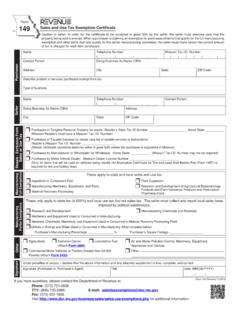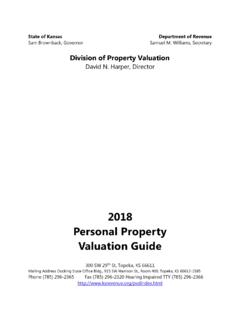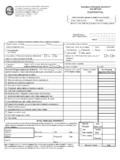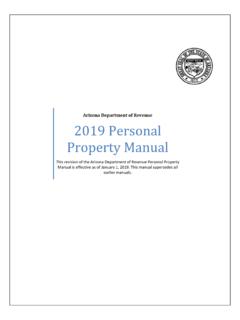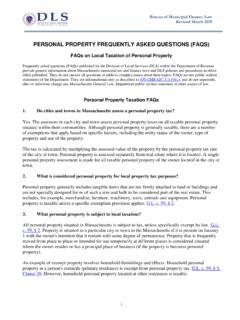Transcription of See, e.g., Everett, Clarke & Benedict v. Alpha Portland ...
1 Attorney Charging Liens: A Primer John C. Martin Your client stands to make a lot of money as the result of your able assistance. The client (or the client s creditors), however, might be interested in further increasing that recovery by eliminating an associated cost your fees. What s a lawyer to do? In virtually all states, attorneys can protect themselves in such circumstances by asserting a charging lien, ensuring that their fees are paid out of the recovery obtained through their efforts. Charging liens arise out a recognition that a lawyer is entitled to benefit from a judgment obtained as the result of the lawyer s services. See, , Len-Hal Realty, Inc. v. Wintter & Cummings, 689 1191 (Fla. Dist. Ct. App. 1997). They also frequently provide an expeditious way of resolving claims for unpaid fees.
2 As set forth below, however, effectively employing charging liens typically requires some planning and such liens are subject to important restrictions as a matter of both law and legal ethics and, to complicate matters, the rules governing exactly how charging liens are imposed and executed vary dramatically between jurisdictions. I. What We Talk About When We Talk About Charging Liens An attorney s right to assert a lien against client property to ensure payment of professional fees has been recognized at common-law since the early eighteenth century. See, , Everett, Clarke & Benedict v. Alpha Portland Cement Co., 225 F. 931, 935 (2d Cir. 1915) (summarizing history of attorney liens). In most states, this right is now embodied in statutes. (Appendix A to this article provides a listing of such statutes and, for jurisdictions in which charging liens are a matter of common law, identification of leading cases addressing the common-law right.)
3 While the term attorney s lien is sometimes generically used to describe an attorney s right to use client property to secure payment, such liens fall into two distinct categories: retaining liens and charging liens. The attorney retaining lien is exactly what it sounds like a right by the attorney to retain property belonging to the client, but in the possession of the attorney, until amounts due to the attorney are paid. Retaining liens are possessory liens they apply to any property in the lawyer s possession, including not only money, but papers and other documents that may have been entrusted to the lawyer in the course of his employment. These are sometimes described as passive liens, since enforcement of retaining liens does not require the attorney to take any action (such as filing court papers) to be effective.
4 The attorney simply refuses to return the client s property until the amounts due are paid; indeed, once the property is returned to the client, the lien vanishes. The monetary value of the property retained is also generally irrelevant the only value that matters is the value to the client, since the retained property is effectively held hostage until payment is received. See generally, Brauer v. Hotel Associates, Inc., 40 415, 422, 192 831, 835 (1963) (describing general characteristics of retaining liens and noting that intrinsic worth or worthlessness of property retained is immaterial). Perhaps for that reason, retaining liens are sometimes the subject of special ethical scrutiny, with some jurisdictions holding that a lawyer s obligation to take no action prejudicial to the client s interest either limits or eliminates entirely a lawyer s right to assert a retaining lien over client property.
5 See, , Defendant A v. Idaho State Bar, 2 147 (Idaho 2000); Ferguson v. State, 773 877 (Ind. Ct. App. 2002); Minn. Stat. Ann. Section , Louisiana Rule of Prof l Conduct (d)); North Dakota Rule of Prof l Conduct (a); New Jersey Rule of Prof l Conduct (d) (2013 amendment). While sometimes referred to by the same name (and in many instances authorized by the same state statutes), charging liens differ dramatically from their retaining cousins. The essential distinction between charging liens and retaining liens arises from the property to which they apply. While retaining liens apply to property belonging to the client but in the possession of the attorney, charging liens address amounts that the client will obtain as the result of a judgment or settlement. As a result, charging liens are not passive to be effective, they require some affirmative action by the attorney, including notice to relevant parties and court enforcement of some kind.
6 Moreover, charging liens generally do not apply to any money due a client, but only to judgments or similar rights of recovery obtained with the lawyer s assistance. Finally, charging liens afford rights to recover, not merely from the client, but from third parties who disregard the attorney s rights to payment. II. Essential Features: A Massachusetts Model and Multiple Modifications While charging liens protect an attorney s right to compensation by providing a right in some payment or property due the client, the statutory and common-law descriptions of charging liens differ from state to state. Accordingly, any accurate description of charging liens needs not just to employ terms like usually and generally but to do so frequently. To provide a better picture of how charging liens work, however, it makes sense to have an example, and a simple one is provided by the Massachusetts charging lien statute: From the authorized commencement of an action, counterclaim or other proceeding in any court, or appearance in any proceeding before any state or federal department, board or commission, the attorney who appears for a client in such proceeding shall have a lien for his reasonable fees and expenses upon his client's cause of action, counterclaim or claim, upon the judgment, decree or other order in his client's favor entered or made in such proceeding, and upon the proceeds derived therefrom.
7 Upon request of the client or of the attorney, the court in which the proceeding is pending or, if the proceeding is not pending in a court, the superior court, may determine and enforce the lien; provided, that the provisions of this sentence shall not apply to any case where the method of the determination of attorneys' fees is otherwise expressly provided by statute. Mass. Gen. Laws Ann. ch. 221, 50 (West). A. The Fees Protected Most basically, the Massachusetts statute provides that the attorney will have a lien for his reasonable fees and expenses. The reference to reasonable fees and expenses hardly qualifies as a limitation, since virtually every jurisdiction prohibits unreasonable fee claims. See, , ABA Model Rule of Prof. Conduct R. (a) ( A lawyer shall not make an agreement for, charge, or collect an unreasonable fee or an unreasonable amount for expenses.)
8 In most jurisdictions, however, fees can be the subject of a charging lien irrespective of whether they are calculated on an hourly or contingent basis. See, , Fletcher v. Davis, 33 Cal. 4th 61, 66, 90 1216, 1219 (2004); D'Urso v. Lyons, 97 Conn. App. 253, 257, 903 697, 700 (2006); but see Wilson v. Wilson, 183 App. 267, 272, 644 379, 383 (2007) (noting that North Carolina law generally limits lien to contingent recoveries); Shenango Sys. Sols., Inc. v. Micros-Sys., Inc., 2005 PA Super 370, 11, 887 772, 775 (2005) (questioning whether charging lien could be arise absent agreement to pay out of recovery); Sinclair, Louis, Siegel, Heath, Nussbaum & Zavertnik, v. Baucom, 428 So. 2d 1383, 1385 (Fla. 1983) (noting that Florida common law liens require an understanding, express or implied, between the parties that the payment is either dependent upon recovery or that payment will come from the recovery ) The lien generally protects only those fees incurred in the proceeding in which the lawyer appeared and which generated the recovery to which the lien attaches.
9 See Boswell v. Zephyr Lines, Inc., 414 Mass. 241, 248, 606 1336, 1341 (1993) (noting that liens intended to prevent a client from receiving the fruits of recoveries without paying for the valuable services by which the recoveries were obtained. ); see also Recht v. Urban Redevelopment Auth. of City of Clairton, 402 Pa. 599, 608, 168 134, 139 (1961); Mitchell v. Coleman, 868 So. 2d 639, 641 (Fla. Dist. Ct. App. 2004) ( It is not enough to support the imposition of a charging lien that an attorney has provided his services; the services must, in addition, produce a positive judgment or settlement for the client, since the lien will attach only to the tangible fruits of the services ); Chadbourne & Parke, LLP v. AB Recur Finans, 18 222, 223, 794 349, 351 (2005) (charging lien enforceable only against the fund created in that action ).
10 This also underscores one of the principal limitations of charging liens: they can be invoked only when the attorney s work generates a fund from which fees can be extracted and do not arise in cases where an attorney provides an effective defense or otherwise generates a savings. See, , Goldstein, Goldman, Kessler & Underberg v. 4000 East River Road Associates, 409 886 ( App. Div. 1978) (future tax savings from successful challenge to assessment were not proceeds to which charging lien could attach). B. When the Lien Arises and What The Lien Covers The Massachusetts statute provides that the charging lien arises from the authorized commencement of an action, counterclaim or other proceeding.. and constitutes a lien upon the client s cause of action, counterclaim, or claim, upon the judgment decree or other order in his client s favor entered or made or such proceeding, and upon the proceeds derived therefrom.


